Chairman of the Finance and Budget Committee Le Quang Manh said that the draft Law on Public Investment (amended) this time mainly focuses on groups of solutions to solve the "chronic disease" of slow disbursement of public investment capital.
Separating GPMB will create flexibility and initiative.
On the afternoon of October 29, the National Assembly discussed in groups the draft Law on Public Investment (amended) and the draft Law on amending and supplementing a number of articles of the Law on Securities, the Law on Accounting, the Law on Independent Auditing, the Law on State Budget, the Law on Management and Use of Public Assets, the Law on Tax Administration and the Law on National Reserves.
Commenting on the draft Law on Public Investment (amended), most opinions agreed with the new draft law separating site clearance into a separate project; increasing the scale of public investment capital of important national projects from 10,000 billion VND to 30,000 billion VND or more; of group A, group B and group C projects with a scale twice as large as current regulations.

Ms. Van Thi Bach Tuyet, Deputy Head of the Ho Chi Minh City National Assembly Delegation, gave comments at the group.
Giving her opinion, Deputy Head of the Ho Chi Minh City National Assembly Delegation Van Thi Bach Tuyet agreed to separate site clearance work into an independent project for all projects, including group B and C projects.
Delegate Tuyet believes that this approach will create initiative and prevent waste. Because in practice, when merging the resettlement compensation and support project into the construction project, there are many cases due to delays in site clearance and resettlement work. As a result, the construction project has to be adjusted many times, wasting a lot of time, wasting money and effort of the investor.
Separating the two projects will create initiative in implementation.
Furthermore, the female delegate of Ho Chi Minh City delegation said that separating the GPMB compensation project also solves the situation where the locality wants to create land fund for auction.
With the current regulations, this cannot be done. Because if there is no specific construction project, there will be no compensation project. In case a locality wants to create a clean land source for auction to generate revenue for investment and development, it will be stuck.
Second, regarding the provisions on the authority of the Prime Minister to assign the Provincial People's Committee as the competent authority to implement the project in the area of 2 or more provincial-level administrative units; the Chairman of the Provincial People's Committee is selected to assign a District People's Committee as the competent authority to implement the project in the area of 2 or more district-level administrative units or to organize the implementation of the project according to his authority.
Delegates recognized that this regulation is to strengthen decentralization, creating initiative in coordination without having to wait for the central agency to be the project investor.
Many central agencies and ministries are responsible for many projects, including key national projects. If all the projects are put on the investor, a central ministry, it will cause certain delays.
Regarding increasing the scale of public investment capital, delegate Tuyet completely agreed and said that the Ho Chi Minh City National Assembly delegation had suggested this point a long time ago but the National Assembly had not yet studied and accepted it.
According to her, in reality, there are many public investment projects in a province or city, not related to other provinces or cities, but the capital scale is over 10,000 billion VND. If it has to follow the process of group A projects, it will take a lot of time, effort and procedures.
Therefore, increasing the capital scale of key national projects from 10,000 billion VND to 30,000 billion VND is appropriate. For group B and C projects, the female delegate said that it is not necessary to double as in the draft law, but it is possible to consider increasing it by 3 times.
Minimize administrative procedures, avoid the mechanism of asking and granting
Also agreeing with the draft amendment to the Law on Public Investment, delegate Duong Ngoc Hai (Ho Chi Minh City delegation) pointed out that some provisions in the current law do not meet and are not suitable to the actual situation and requirements of socio-economic development in the new situation.
In particular, some contents do not clearly specify the authority, order, and procedures, and there are many different interpretations. Therefore, there should be a push and pull, creating a mechanism of asking and giving between localities and ministries and between ministries and branches.

Delegate Duong Ngoc Hai (HCMC delegation) spoke at the group.
In addition, there are also problems such as the quality of investment preparation work in the past has not met the requirements. Some projects and investment programs need to adjust the investment policy, which takes a lot of time and affects the progress of the project investment.
From the above problems, delegates highly agree with the viewpoint of amending the law and policy mechanisms under the Law on Public Investment (amended) to decentralize and delegate power strongly from the Central to local levels in the spirit of "locality decides, locality does and locality is responsible", while the Central level strengthens inspection and supervision to ensure clear people, clear work, clear responsibilities.
"On that basis, administrative procedures will be minimized to enhance the sense of responsibility, avoid shirking, evasion and the mechanism of asking and giving," Mr. Hai said, hoping that this amendment to the Law will remove all obstacles that localities encounter, speeding up investment projects.
Create flexibility, have timely resources
Speaking at the meeting, Chairman of the Finance and Budget Committee Le Quang Manh said that the revised Law on Public Investment this time mainly focuses on groups of solutions to solve the chronic disease in public investment, which is slow disbursement of public investment capital.
According to Mr. Manh, every year, the press and mass media often mention the issue of slow disbursement of public investment capital.

Chairman of the Finance and Budget Committee Le Quang Manh spoke at the meeting.
Stating the cause of this disease, Mr. Manh said one of the main reasons is site clearance work.
The next reason is that investment preparation work is often rushed, so the implementation process has to be revised many times.
"In the world, many countries spend years preparing to invest in a group A or B project but only implement it in one year, while we do the opposite," said the Chairman of the Finance and Budget Committee.
Other reasons Mr. Manh pointed out were that because of multi-level management, administrative procedures are lengthy; ODA projects have complicated procedures; and the use of different sources in implementing public investment is not synchronized.
Therefore, according to Mr. Manh, this time the Government focuses on amending 5 main groups of solutions.
The first is decentralization and delegation of power to localities and ministries to reduce procedures. The mechanisms that have been piloted in many localities and sectors have proven effective and will be legalized for implementation nationwide.
Another solution is to separate GPMB to shorten project implementation time and synchronize with other laws. There is also a separate group of solutions for ODA projects.
"The revised Law on Public Investment focuses on addressing the causes of slow disbursement, in line with the wishes of delegates to create flexibility and have timely resources to meet practical life," he emphasized.
Source: https://www.baogiaothong.vn/sua-luat-de-chua-can-benh-cham-giai-ngan-von-dau-tu-cong-192241029173026996.htm



![[Photo] "Ship graveyard" on Xuan Dai Bay](https://vphoto.vietnam.vn/thumb/1200x675/vietnam/resource/IMAGE/2025/11/08/1762577162805_ndo_br_tb5-jpg.webp)




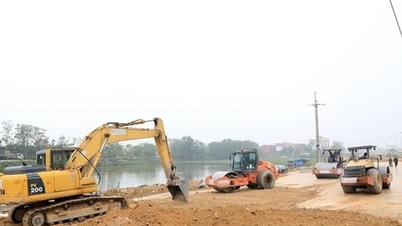

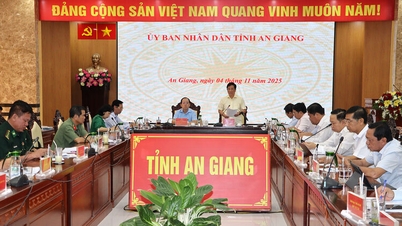

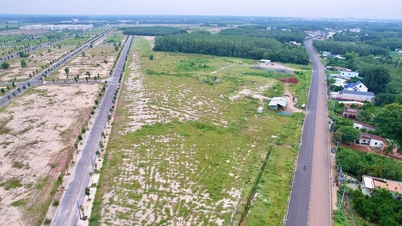





























![[Video] Hue Monuments reopen to welcome visitors](https://vphoto.vietnam.vn/thumb/402x226/vietnam/resource/IMAGE/2025/11/05/1762301089171_dung01-05-43-09still013-jpg.webp)






























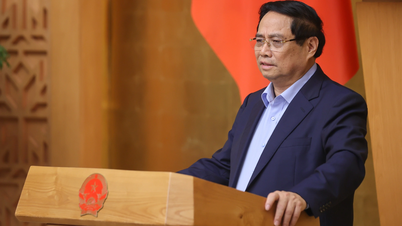






















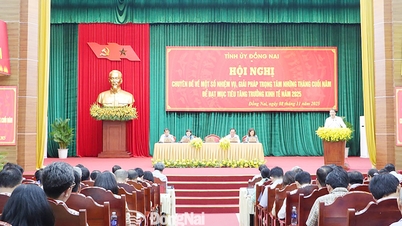












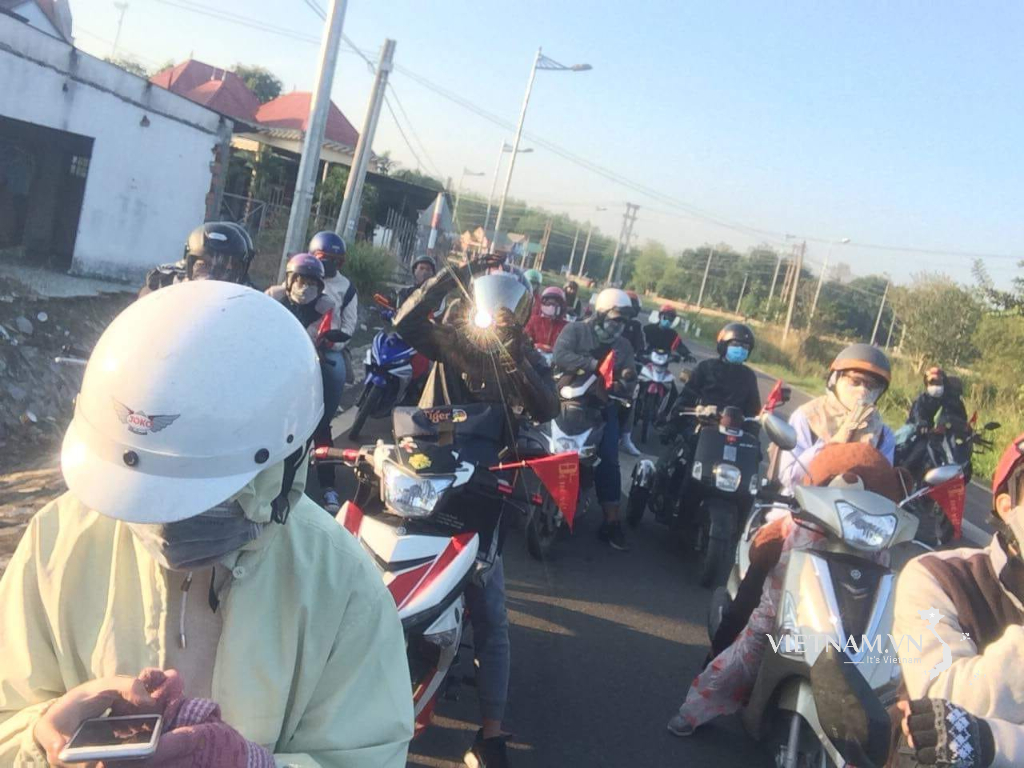


Comment (0)